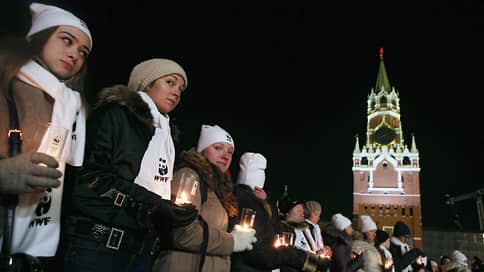The Ministry of Justice added WWF to the list of undesirable organizations – Kommersant
[ad_1]

The Ministry of Justice has included the international non-governmental organization WWF (World Wide Fund for Nature) registered in Switzerland in the list of undesirable in the territory of the Russian Federation. The reason for this was the decision of the Prosecutor General’s Office of the Russian Federation of June 21. The supervisory authority considered that the activities of the fund are used to “cover” projects that “form threats to security in the economic sphere” and interfere with “the implementation of the country’s political course for the industrial development of the Arctic.” The Prosecutor General’s Office emphasized that WWF created a network of “controlled” NGOs that collected information about the environmental situation in the regions of the Russian Federation and prepared “biased assessments aimed at shackling the economic development of the Russian Federation.”
The World Wildlife Fund (WWF) was founded in 1961 by British biologist Julian Huxley, artist Peter Scott, ornithologists Guy Mountfort and Max Nicholson. The main goal of the work is the preservation of the biodiversity of the Earth. WWF works with NGOs, governments, businesses, investment banks, scientists, fishermen and farmers, and conducts public campaigns to protect animals.
A representative office of WWF opened in Russia in 1994, and in 2004 it became a national organization – WWF Russia (included in the register of foreign agents). The foundation’s website stated that during this time it had carried out 1.5 thousand field projects to preserve and increase Russia’s natural resources in 47 regions of the country. The fund initially relied on a “respectable and respectable image,” one of the founders of the organization explained to Kommersant in the 2010s. WWF Russia experts participated in round tables with officials and deputies, made joint environmental programs with regional authorities and show business stars. The WWF logo, a black and white image of a panda, has appeared on a variety of merchandise. One of the speakers of the foundation was TV presenter Nikolai Drozdov. In 2009, President Dmitry Medvedev congratulated WWF on the 15th anniversary of its work in Russia. In 2014, President Vladimir Putin sent a telegram in honor of the 20th anniversary, noting the fund’s “significant projects” to restore the European bison population, protect the snow leopard from poaching, “preserve the Amur tiger” and “return the leopard to the Caucasus.” At the beginning of 2023, Minister of Justice Konstantin Chuichenko and Special Presidential Envoy for the Environment Sergei Ivanov subjected WWF to sharp public criticism after the statement of the representatives of the fund about insufficient funding for nature conservation by the Russian authorities: does not engage in any protection of nature and is not very interested in this, but is primarily interested in raising money, in self-promotion and in bribing journalists,” Mr. Ivanov said, in particular. “Russia, I am absolutely convinced of this, is quite capable of solving the issues of nature protection completely independently, without any foreign help and advice.”
[ad_2]
Source link








